SPEAKING ON SPECIAL OCCASIONS Primary Purpose Is Neither

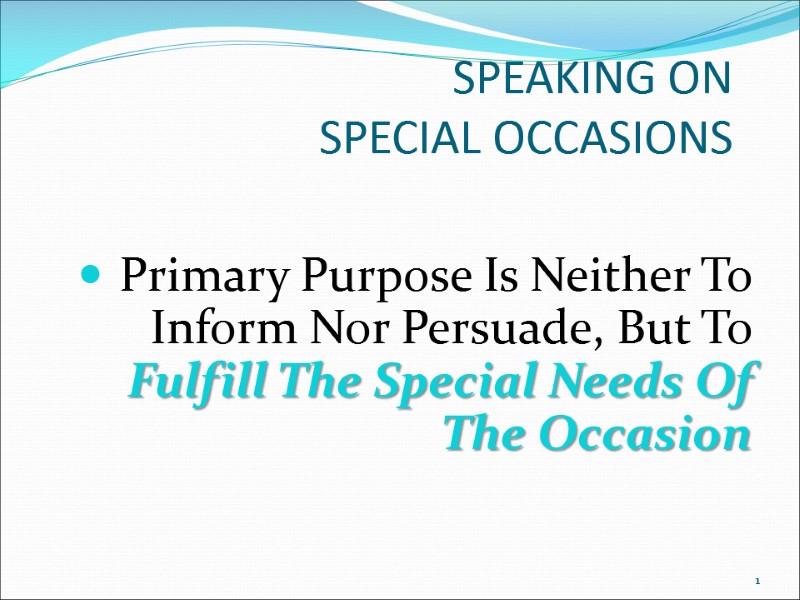
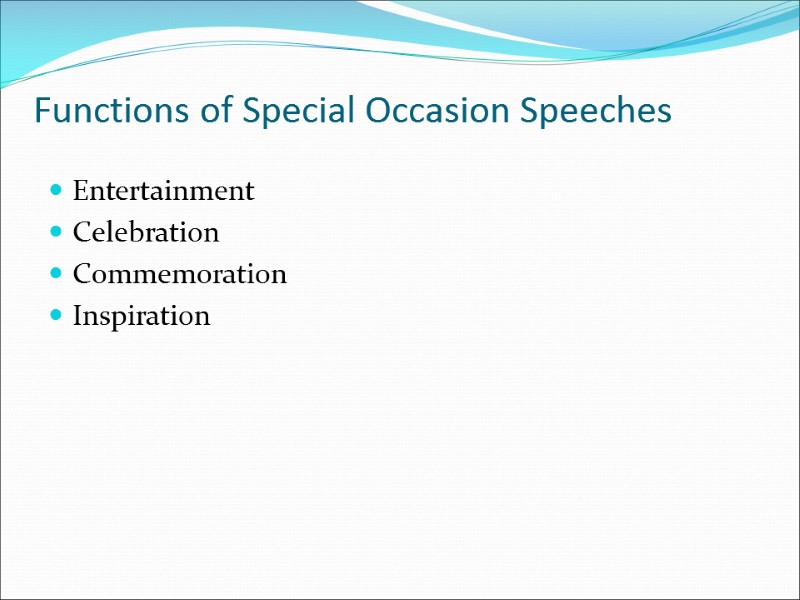
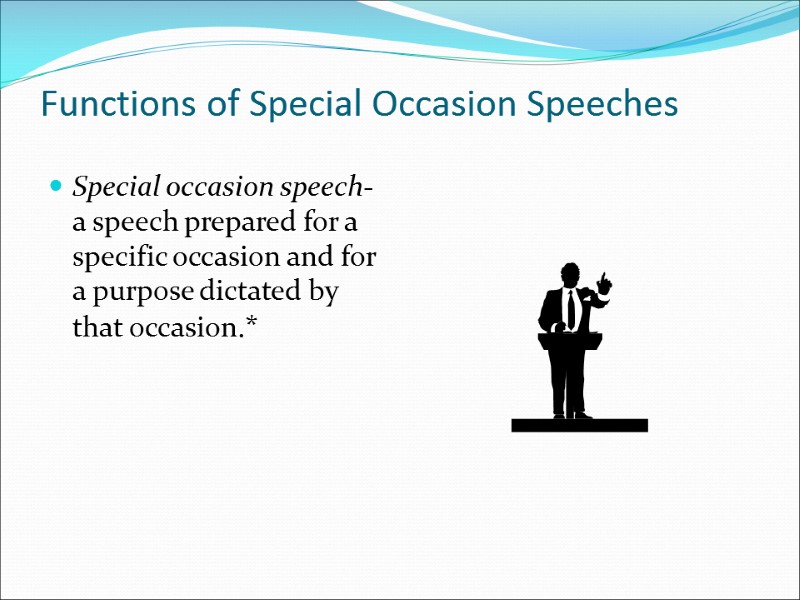
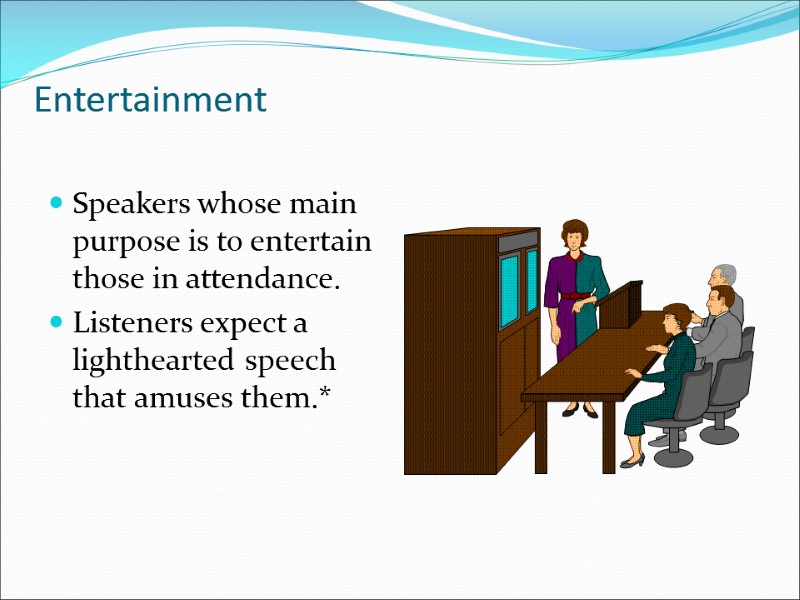
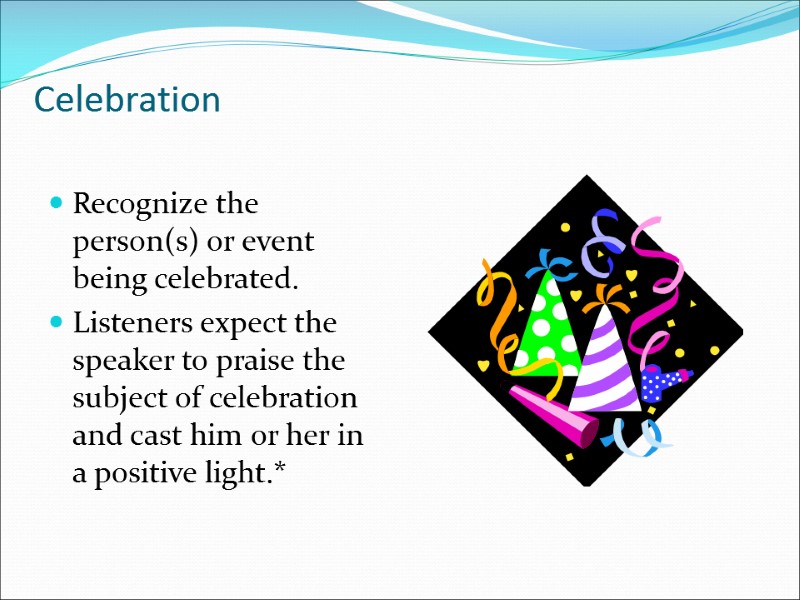
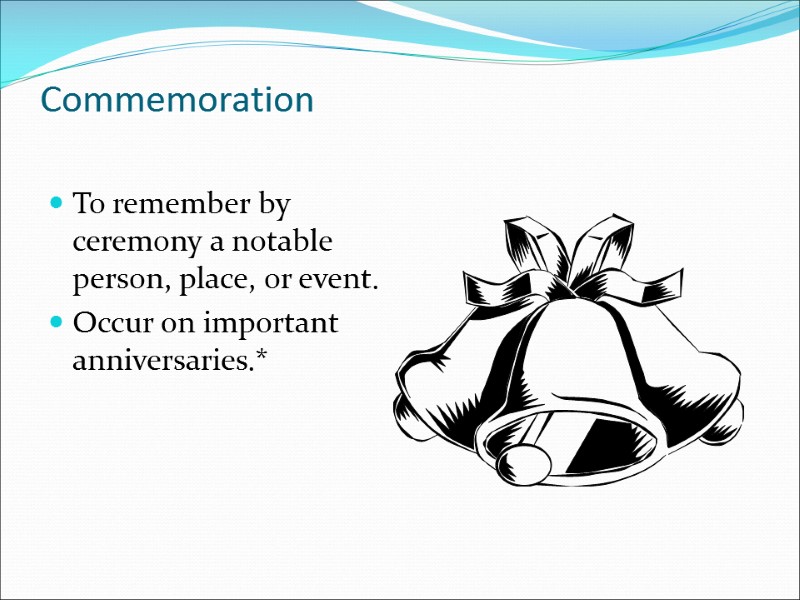
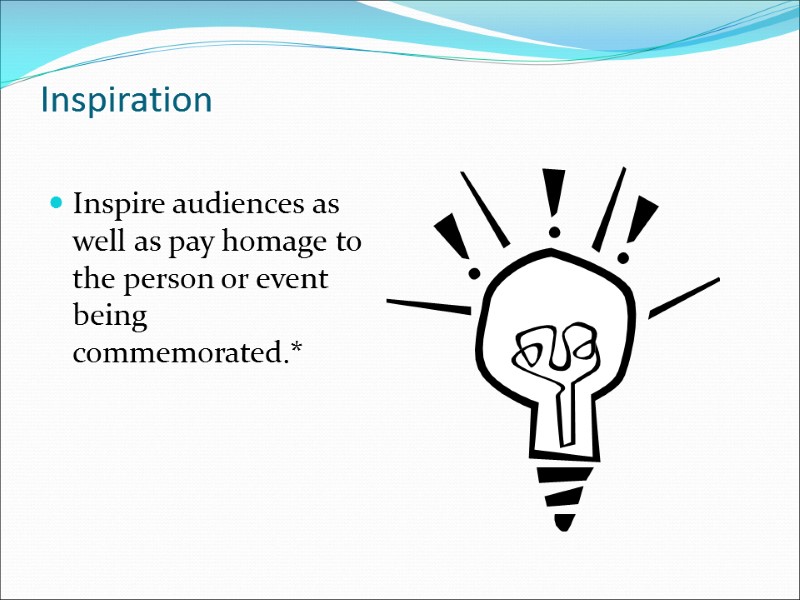
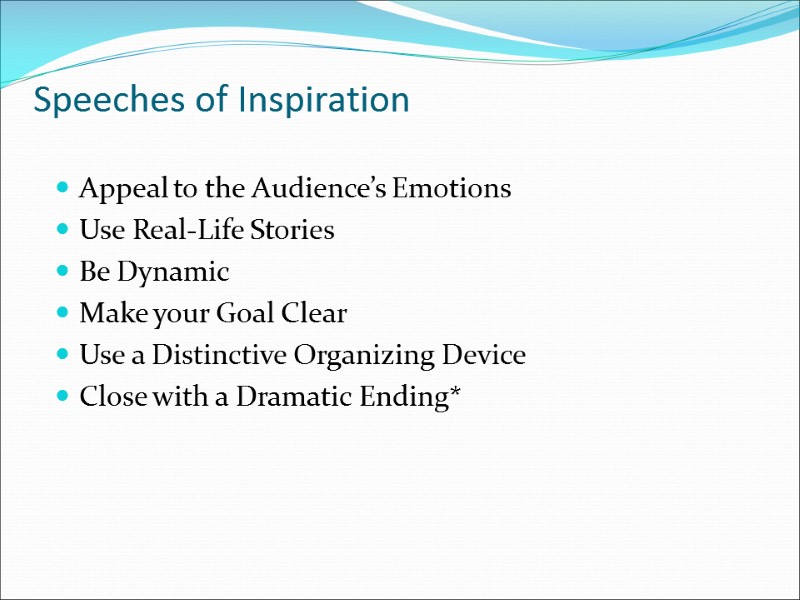
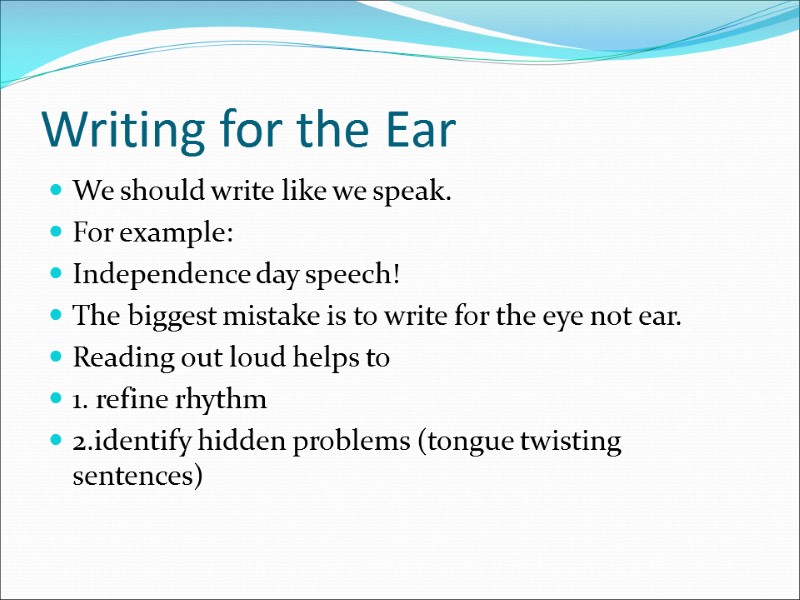
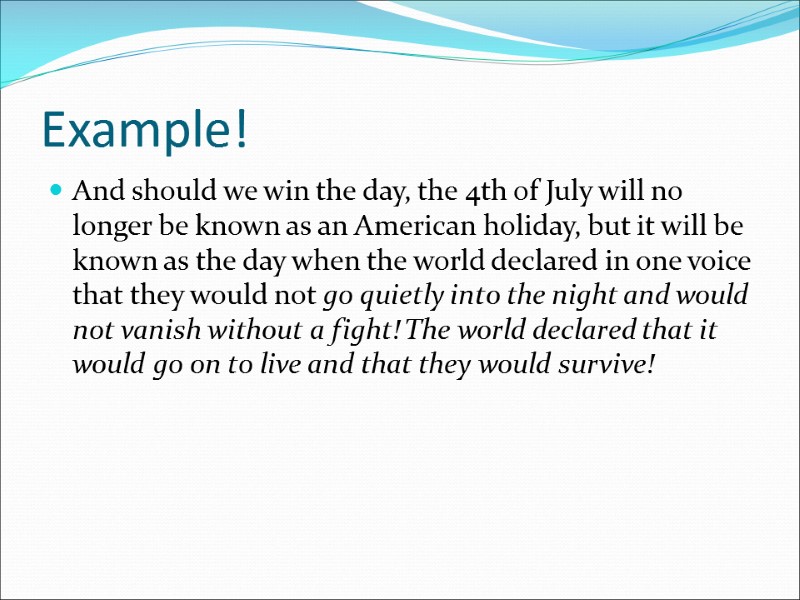
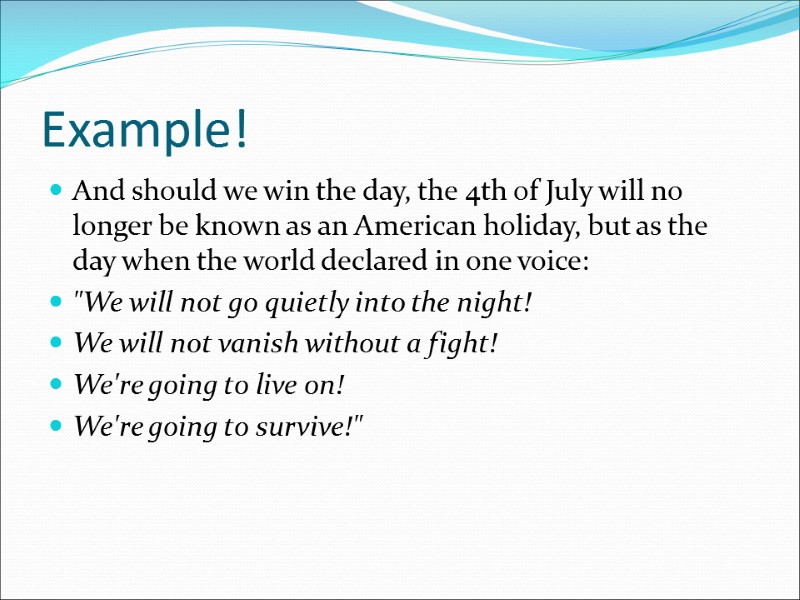
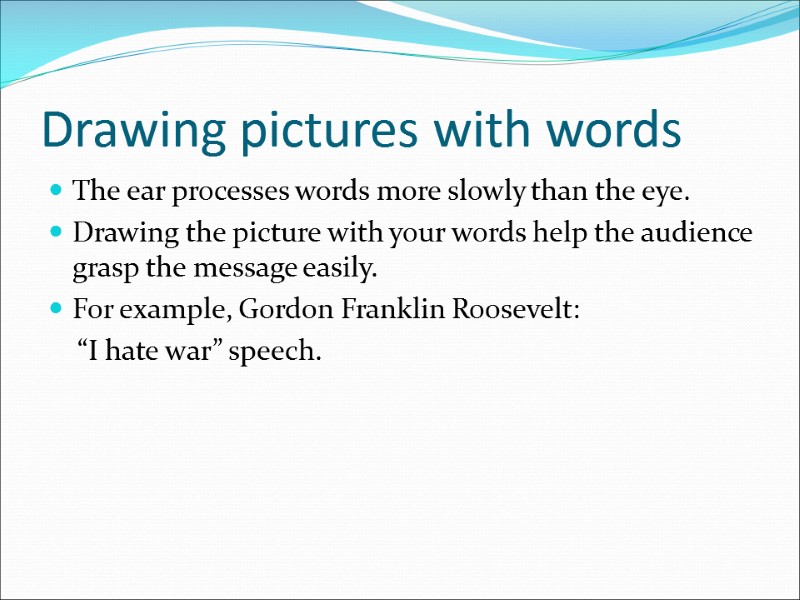
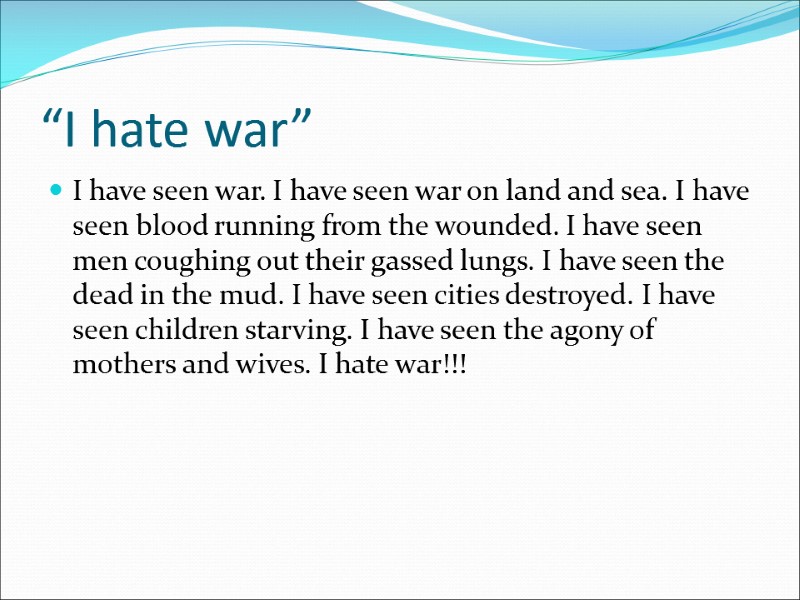
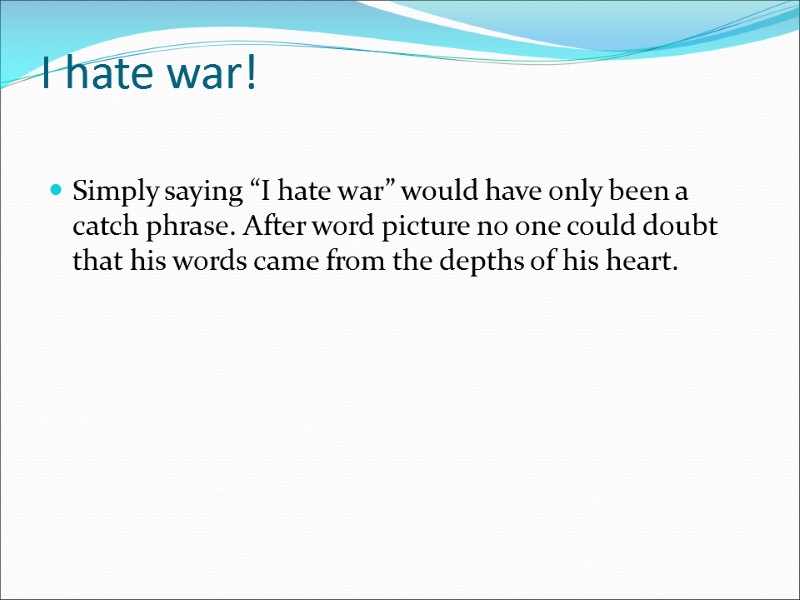
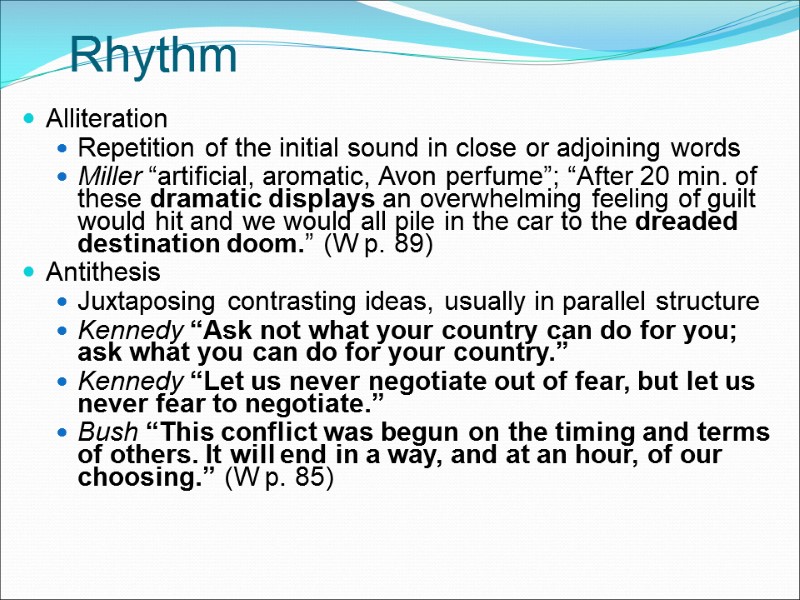
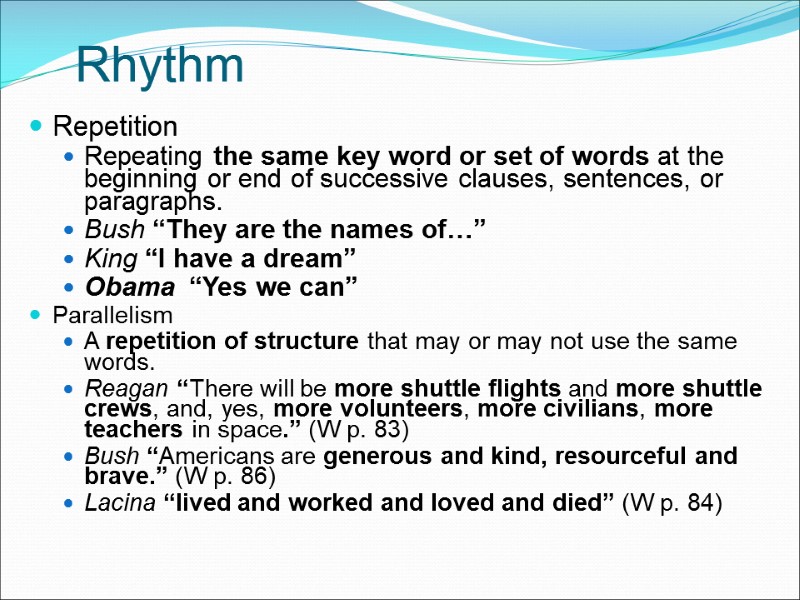
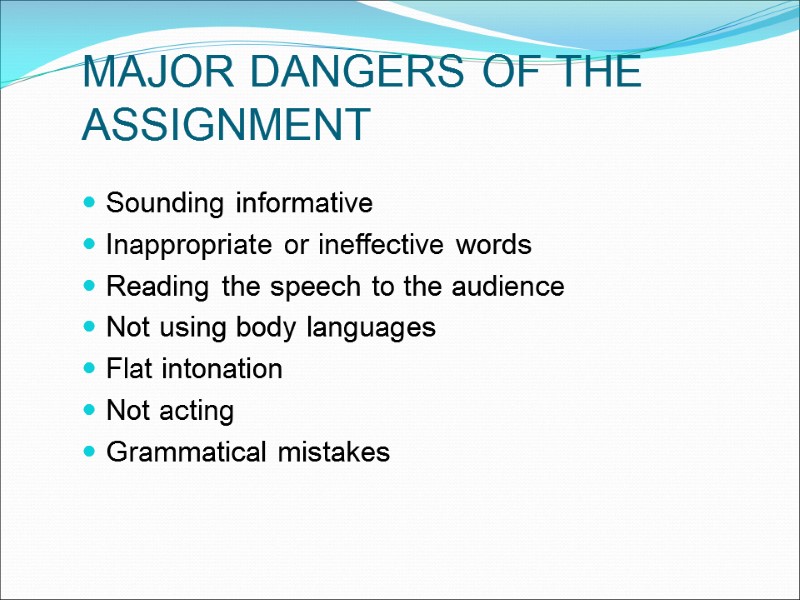
6618-special_occ_speech.ppt
- Количество слайдов: 17
 SPEAKING ON SPECIAL OCCASIONS Primary Purpose Is Neither To Inform Nor Persuade, But To Fulfill The Special Needs Of The Occasion 1
SPEAKING ON SPECIAL OCCASIONS Primary Purpose Is Neither To Inform Nor Persuade, But To Fulfill The Special Needs Of The Occasion 1
 Functions of Special Occasion Speeches Entertainment Celebration Commemoration Inspiration
Functions of Special Occasion Speeches Entertainment Celebration Commemoration Inspiration
 Functions of Special Occasion Speeches Special occasion speech- a speech prepared for a specific occasion and for a purpose dictated by that occasion.*
Functions of Special Occasion Speeches Special occasion speech- a speech prepared for a specific occasion and for a purpose dictated by that occasion.*
 Entertainment Speakers whose main purpose is to entertain those in attendance. Listeners expect a lighthearted speech that amuses them.*
Entertainment Speakers whose main purpose is to entertain those in attendance. Listeners expect a lighthearted speech that amuses them.*
 Celebration Recognize the person(s) or event being celebrated. Listeners expect the speaker to praise the subject of celebration and cast him or her in a positive light.*
Celebration Recognize the person(s) or event being celebrated. Listeners expect the speaker to praise the subject of celebration and cast him or her in a positive light.*
 Commemoration To remember by ceremony a notable person, place, or event. Occur on important anniversaries.*
Commemoration To remember by ceremony a notable person, place, or event. Occur on important anniversaries.*
 Inspiration Inspire audiences as well as pay homage to the person or event being commemorated.*
Inspiration Inspire audiences as well as pay homage to the person or event being commemorated.*
 Speeches of Inspiration Appeal to the Audience’s Emotions Use Real-Life Stories Be Dynamic Make your Goal Clear Use a Distinctive Organizing Device Close with a Dramatic Ending*
Speeches of Inspiration Appeal to the Audience’s Emotions Use Real-Life Stories Be Dynamic Make your Goal Clear Use a Distinctive Organizing Device Close with a Dramatic Ending*
 Writing for the Ear We should write like we speak. For example: Independence day speech! The biggest mistake is to write for the eye not ear. Reading out loud helps to 1. refine rhythm 2.identify hidden problems (tongue twisting sentences)
Writing for the Ear We should write like we speak. For example: Independence day speech! The biggest mistake is to write for the eye not ear. Reading out loud helps to 1. refine rhythm 2.identify hidden problems (tongue twisting sentences)
 Example! And should we win the day, the 4th of July will no longer be known as an American holiday, but it will be known as the day when the world declared in one voice that they would not go quietly into the night and would not vanish without a fight! The world declared that it would go on to live and that they would survive!
Example! And should we win the day, the 4th of July will no longer be known as an American holiday, but it will be known as the day when the world declared in one voice that they would not go quietly into the night and would not vanish without a fight! The world declared that it would go on to live and that they would survive!
 Example! And should we win the day, the 4th of July will no longer be known as an American holiday, but as the day when the world declared in one voice: "We will not go quietly into the night! We will not vanish without a fight! We're going to live on! We're going to survive!"
Example! And should we win the day, the 4th of July will no longer be known as an American holiday, but as the day when the world declared in one voice: "We will not go quietly into the night! We will not vanish without a fight! We're going to live on! We're going to survive!"
 Drawing pictures with words The ear processes words more slowly than the eye. Drawing the picture with your words help the audience grasp the message easily. For example, Gordon Franklin Roosevelt: “I hate war” speech.
Drawing pictures with words The ear processes words more slowly than the eye. Drawing the picture with your words help the audience grasp the message easily. For example, Gordon Franklin Roosevelt: “I hate war” speech.
 “I hate war” I have seen war. I have seen war on land and sea. I have seen blood running from the wounded. I have seen men coughing out their gassed lungs. I have seen the dead in the mud. I have seen cities destroyed. I have seen children starving. I have seen the agony of mothers and wives. I hate war!!!
“I hate war” I have seen war. I have seen war on land and sea. I have seen blood running from the wounded. I have seen men coughing out their gassed lungs. I have seen the dead in the mud. I have seen cities destroyed. I have seen children starving. I have seen the agony of mothers and wives. I hate war!!!
 I hate war! Simply saying “I hate war” would have only been a catch phrase. After word picture no one could doubt that his words came from the depths of his heart.
I hate war! Simply saying “I hate war” would have only been a catch phrase. After word picture no one could doubt that his words came from the depths of his heart.
 Rhythm Alliteration Repetition of the initial sound in close or adjoining words Miller “artificial, aromatic, Avon perfume”; “After 20 min. of these dramatic displays an overwhelming feeling of guilt would hit and we would all pile in the car to the dreaded destination doom.” (W p. 89) Antithesis Juxtaposing contrasting ideas, usually in parallel structure Kennedy “Ask not what your country can do for you; ask what you can do for your country.” Kennedy “Let us never negotiate out of fear, but let us never fear to negotiate.” Bush “This conflict was begun on the timing and terms of others. It will end in a way, and at an hour, of our choosing.” (W p. 85)
Rhythm Alliteration Repetition of the initial sound in close or adjoining words Miller “artificial, aromatic, Avon perfume”; “After 20 min. of these dramatic displays an overwhelming feeling of guilt would hit and we would all pile in the car to the dreaded destination doom.” (W p. 89) Antithesis Juxtaposing contrasting ideas, usually in parallel structure Kennedy “Ask not what your country can do for you; ask what you can do for your country.” Kennedy “Let us never negotiate out of fear, but let us never fear to negotiate.” Bush “This conflict was begun on the timing and terms of others. It will end in a way, and at an hour, of our choosing.” (W p. 85)
 Rhythm Repetition Repeating the same key word or set of words at the beginning or end of successive clauses, sentences, or paragraphs. Bush “They are the names of…” King “I have a dream” Obama “Yes we can” Parallelism A repetition of structure that may or may not use the same words. Reagan “There will be more shuttle flights and more shuttle crews, and, yes, more volunteers, more civilians, more teachers in space.” (W p. 83) Bush “Americans are generous and kind, resourceful and brave.” (W p. 86) Lacina “lived and worked and loved and died” (W p. 84)
Rhythm Repetition Repeating the same key word or set of words at the beginning or end of successive clauses, sentences, or paragraphs. Bush “They are the names of…” King “I have a dream” Obama “Yes we can” Parallelism A repetition of structure that may or may not use the same words. Reagan “There will be more shuttle flights and more shuttle crews, and, yes, more volunteers, more civilians, more teachers in space.” (W p. 83) Bush “Americans are generous and kind, resourceful and brave.” (W p. 86) Lacina “lived and worked and loved and died” (W p. 84)
 MAJOR DANGERS OF THE ASSIGNMENT Sounding informative Inappropriate or ineffective words Reading the speech to the audience Not using body languages Flat intonation Not acting Grammatical mistakes
MAJOR DANGERS OF THE ASSIGNMENT Sounding informative Inappropriate or ineffective words Reading the speech to the audience Not using body languages Flat intonation Not acting Grammatical mistakes

